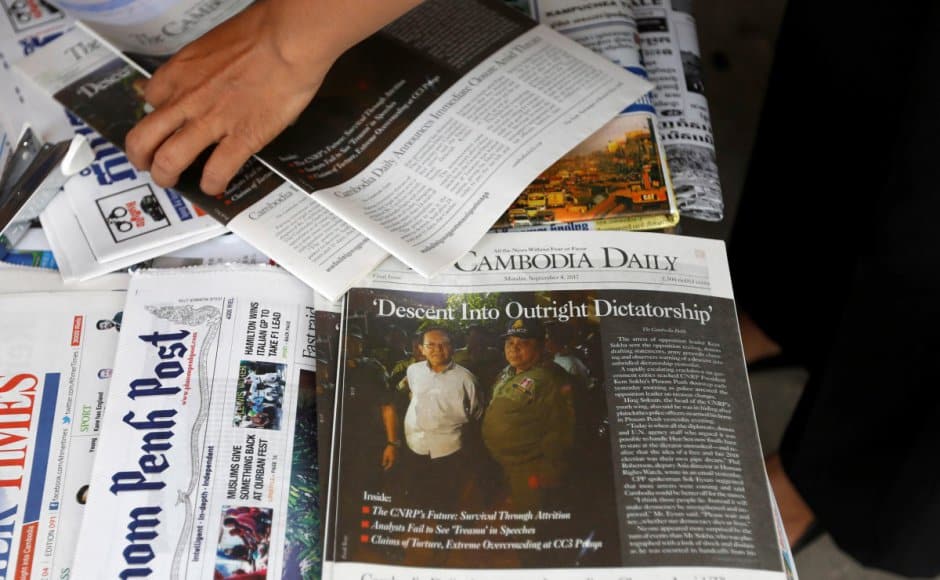The government of Cambodia recently announced a new directive aimed at combating “fake news” that will reportedly, among other restrictions, require all websites to register with Cambodia’s Ministry of Information or face additional scrutiny. The announcement follows a meeting between the prime minister of Vietnam and the prime minister of Cambodia, and comes just ahead of Cambodia’s general election later this month.
This directive is a continuation of recent developments in combating “fake news” in Cambodia. Earlier in the year, the government also claimed the authority to block media which they deem a threat to national defense and security and deployed “specialized units” to monitor social media posts.
This is part of a larger trend seen in the world currently, especially in Asia and across the Middle East and North Africa. Many governments — including Malaysia, Bangladesh, Vietnam, and India — are regulating or attempting to regulate “fake news” (or, in some cases, pursuing broader efforts targeting cybercrime or cybersecurity), while actually putting in restrictions to freedom of expression online.
In March 2017, the United Nations Special Rapporteur on Freedom of Opinion and Expression, the Organization for Security and Co-operation in Europe (OSCE) Representative on Freedom of the Media, the Organization of American States (OAS) Special Rapporteur on Freedom of Expression, and the African Commission on Human and Peoples’ Rights (ACHPR) Special Rapporteur on Freedom of Expression and Access to Information published a joint declaration on freedom of expression and “fake news,” disinformation, and propaganda. The declaration recognizes the problem of “fake news,” but condemns the regulation of free expression in the name of vague and ambiguous ideas, including “fake news” and disinformation.
The declaration provides that restrictions may only be imposed “in accordance with the test for such restrictions under international law, namely that they be provided for by law, serve one of the legitimate interests recognised under international law, and be necessary and proportionate to protect that interest.”
We are deeply troubled by the mounting attacks on freedom of expression all over the world. Access Now will continue to use our platform and work within international human rights bodies to call out the ongoing and relentless violations to the right of freedom of expression. We will provide further updates as more information is available on the full extent of the new Cambodian law and how authorities choose to apply it in the run-up to the elections later this month and beyond.
Image: Reuters/Samrang Pring
